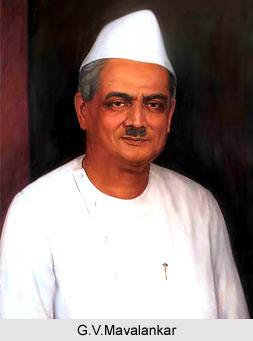 Passionate about working for others, Mavalankar started his vocation in his early twenties. Inspite of being an established lawyer he got associated with many social organizations in Gujarat either as an office bearer or an activist. He also held the position of the honorary secretary of the Gujarat Education Society in 1913 and also the Secretary of the Gujarat Sabha in 1916. Absolutely debarring his money-spinning legal practice.
Passionate about working for others, Mavalankar started his vocation in his early twenties. Inspite of being an established lawyer he got associated with many social organizations in Gujarat either as an office bearer or an activist. He also held the position of the honorary secretary of the Gujarat Education Society in 1913 and also the Secretary of the Gujarat Sabha in 1916. Absolutely debarring his money-spinning legal practice.
Indian National Congress at that time was spear pointing the movement for national freedom under the leadership of Gandhiji with the Non-Cooperation Movement. Mavalankar began to be enthusiastically associated with the Indian National Congress from a very early age. Although, he temporarily joined the Swaraj Party. In the Thirties and the Forties, he has been an active role in the freedom movement in Gujarat. He was imprisoned several times and spent nearly six years in Jail, in the course of the freedom movement.
During 1921-22, in recognition of his leadership qualities and contributions, he was selected Secretary of the Gujarat Provincial Congress Committee. He has also been served as the General Secretary of the Reception Committee for the 36th Session of the Indian National Congress held in Ahmedabad in December 1921. During the `Khaira No-Rent` campaign, he played a very dynamic part and later in the famine and flood relief works on several occasions. Mavalankar was a firm believer in the decentralization of power and in the effectiveness of Panchayati Raj Institutions. For nearly two decades, Mavalankar dedicated himself to the associations of Ahmedabad Municipality and he remained a member of the Ahmedabad Municipality from 1919 to 1937. He served at its President during 1930-33 and 1935-36. Ahmedabad made remarkable progress under the custodian of G.V.Mavalankar. His concentration in the affairs of the local self-government bodies continued all the way through his life.
Educational and literary activities in Gujarat have now found its way hand in hand with Mavalankar. He was the founder member and later the President of the Ahmedabad Education Society and was also the President of the Gujarat Vernacular Society. Other Societies that were enriched with Mavalankar`s association with in various capacities included the Gujarat Law Society, and the Charotar Education Society. He has also served as the `working Chairman` of the Gujarat University Association and the Chairman of the Committee for Gujarat University. He endeavored hard, in these capacitances to mobilize the finances and other infrastructure for the Gujarat University.
In the year 1937, Mavalankar`s legislative career began. He was elected to the then Bombay Legislative Assembly on behalf of the city of Ahmedabad. Mavalankar was the instantaneous choice of the Assembly to be its Speaker, because of his standing as a renowned lawyer and his quarter century long experience in different capacities in the service of the people of Gujarat. Thus, this eminent personality started his legislative career engrossing the office of the Speaker itself.
Years From 1937 to 1946, Mavalankar remained Speaker of the Bombay Legislative Assembly. He became a natural choice of the Congress Party for the President ship of the Sixth Central Legislative Assembly that held in January 1946 after his success as the Speaker of the Bombay Legislative Assembly. Congress Party was the opposition party at that time, so the nomination by them was not enough to ensure his election as the majority of members were on the Government side that had put up its own candidate. Nevertheless, Mavalankar emerged triumphant, after a fanatically contested election. He held the position of the Speaker of the Central Legislative Assembly till the midnight of August 14-15, 1947 when, under the Indian Independence Act, 1947, the Central Legislative Assembly and the Council of States terminated to exist and the Constituent Assembly of India implicit full powers for the governance of the country.






































